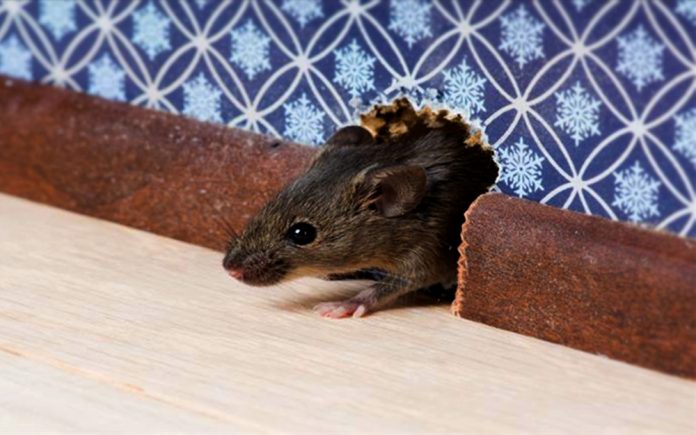
By Fire Chief Sam DiGiovanna
Zip It! When I was a child, my siblings and I would hear that often from my parents. Constant chatter coming from five kids all in a row, age the non-stop talking and questions must have driven my parents a bit crazy.
Zip it from my folks meant to “keep it in” as a signal to stop the nonstop talking. But there is another meaning to “zip it” and that’s to “keep it out.”
What do I mean by this? Cold weather is upon us, and people aren’t the only ones who value a dry, cozy home in cold weather. Rodents do, too. As it gets colder, everything that was outside tends to want to find some sort of harbor inside.
They scurry in our walls and above our heads during the night, they raid our food and ruin it with their feces, and they reproduce wildly, creating more and more inhabitants for us to worry about. Rats, mice, and squirrels also do a lot of damage to your home’s structure, insulation, pipes. and even electrical wiring.
It’s important to zip it with your home to prevent these rodents from getting in and causing damage. While you can repair obvious damage, it’s all too easy to miss a gnawed piece of wire when confronted with larger scale issues like insulation used as nesting, excrement contaminated floorboards and gnawed on support beams.
Rodents’ teeth are constantly growing, which forces them to have to gnaw on anything they can get their paws on to file their teeth down. Plastic insulation surrounding electrical wiring exists because electricity is quite hot when it goes through wires. The insulation protects nearby objects from getting overheated. However, when a rat or other rodent has been going after your wires, they leave nothing left but the hot, exposed metal. It’s only a matter of time before the wire either short circuits, causing a spark, or heats up and causes something nearby to ignite.
Because mice can enter holes of even 1/4 inch, you need to zip it and seal any exposed openings to ensure that rodents cannot enter your home. Your home should be free of exposed elements where rodents can gain entry.
Avoid storing firewood, supplies, equipment etc., next to your house. Rodents find refuge in these first and then can move into the home. Keep tree branches away from rooflines as Norway roof rats can gain access through these and heavy vegetation next to the home.
If you already have rodents, you should call a professional pest control expert immediately. Ask your pest control expert about ways to check for and repair rodent-created damages.
As always, install and frequently test a smoke detector in your house whether you have rodents or not. If a fire does occur, a smoke detector can save your life and the lives of your family.
It’s cold out, so make sure you zip your home up!









































